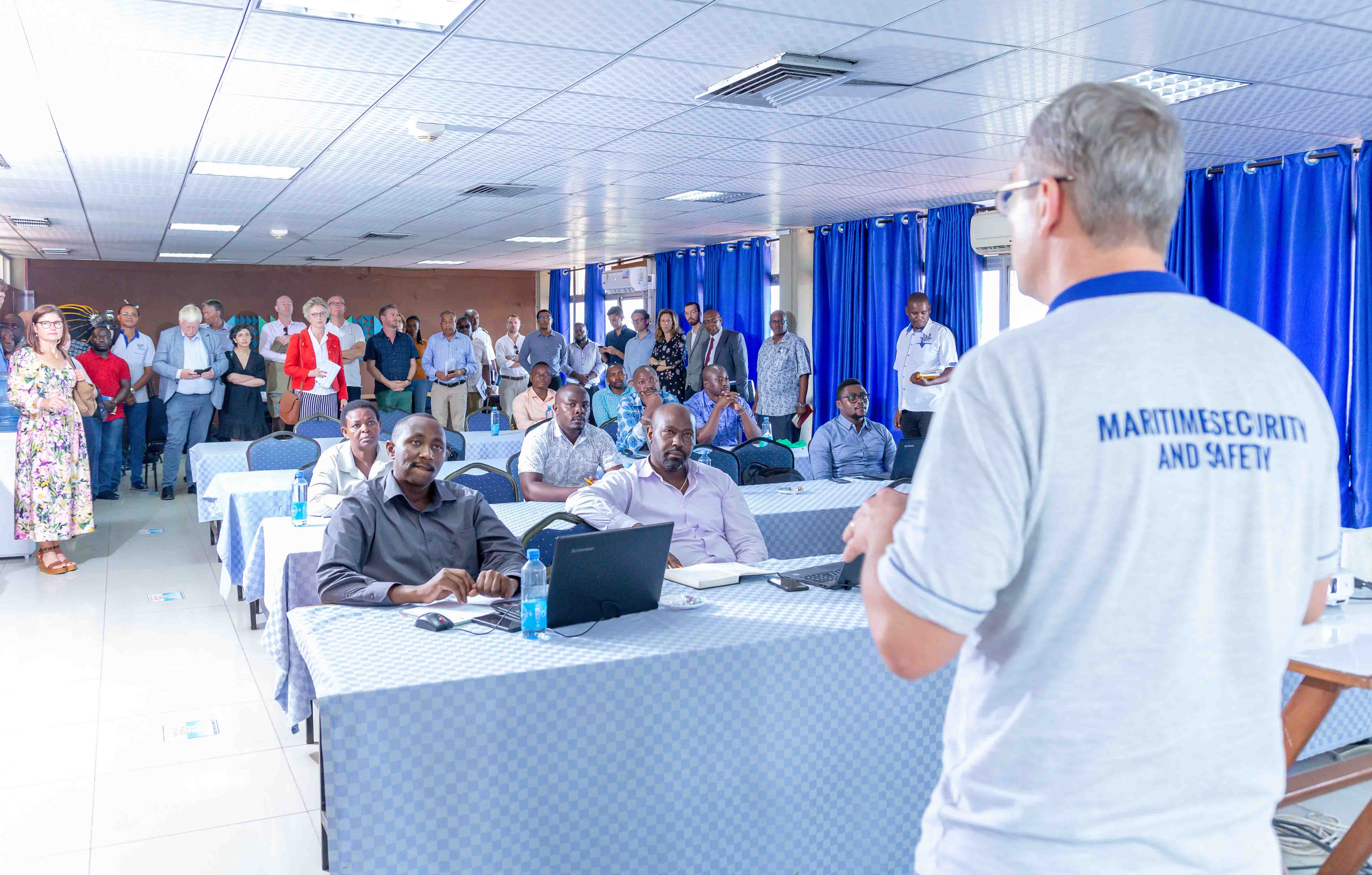
Illegal, unreported, and unregulated (IUU) fishing poses a significant threat to the marine ecosystem and sustainable fishing practices worldwide. Kenya, a coastal nation rich in marine biodiversity is no exception. As part of their efforts to enhance maritime security and safety in Kenya, Expertise France works with the Bandari Maritime Academy in collaboration with key stakeholders in the maritime domain, to develop an interagency curriculum on Maritime Security Governance, including combating IUU fishing. With financial support from the European Union, this groundbreaking initiative aims to safeguard Kenyan territorial waters and promote sustainable fishing practices.
Addressing illegal, unreported and unregulated fishing requires a coordinated approach
“When you look at illegal, unreported and unregulated fishing and its impact, especially on coastal livelihoods, you will find that it is very important to have a coordinated way to eliminate or reduce illegal fishing. Without that coordinated approach, we are not going to defeat this illegal activity,” says Benedict Kiilu from Kenya Fishery Service and a participant in the interagency curriculum development and training on Maritime Security Governance. Illegal, unreported and unregulated fishing has severe consequences for marine ecosystems, local economies, and food security. In Kenya, IUU fishing depletes fish stocks, disrupts the delicate balance of marine life, and undermines the prosperity of coastal communities that rely on fishing for sustenance and income. According to the Kenya Marine and Fisheries Research Institute, IUU fishing accounts for a substantial portion of the country's total fish catch, estimated to be as high as 30% to 40%. This illicit practice not only undermines the sustainability of fish stocks but also has detrimental socio-economic consequences for local communities dependent on fishing for their livelihoods.
“Developing this curriculum is very important because it offers an opportunity to have that coordinated approach towards the fight against IUU fishing,” Benedict adds. “It is very important to have that integrated approach where agencies who have a first mandate in the maritime domain come together and act as a team,” he concludes.
Developing an interagency curriculum: a vital resource in safeguarding Kenya's waters
Throughout May 2023, key maritime stakeholders such as Kenya Navy, Kenya Coast Guard Service, Kenya Fisheries Service and Kenya Wildlife Service have come together to develop a common core of knowledge on IUU Fishing. By focusing on IUU fishing, the curriculum aims to equip maritime security agencies with the necessary tools to effectively combat this illegal activity.
“The importance of developing this curriculum is to build our own capacity and be able to develop or teach others, especially those who are key maritime players,” says Gilbert Mbogo, a training instructor in the interagency curriculum training on Maritime Security Governance. The curriculum covers various aspects, including the identification of IUU fishing vessels, monitoring techniques, and enforcement strategies, and will serve as a vital resource in ensuring the comprehensive safety and security of Kenyan territorial waters.
Empowering key maritime stakeholders with the skills and expertise needed
Through capacity building and knowledge sharing, Expertise France and Bandari Maritime Academy are empowering key maritime stakeholders with the skills and expertise needed to protect Kenya's marine resources. “While developing this curriculum, we use a bottom-up approach whereby we put everyone in the same room, they share their views, exchange different experiences and identify loopholes. It is a first crucial step for the various actors to cooperate together, who don’t necessarily are used to working together,” says Emmanuel Reuillard, a Go Blue maritime safety training expert.
“The advantage of doing it this way will be that ultimately, the curriculum will be uniform and standardized for each and every agency to set up and organize their own formations or training activities,” he adds. By strengthening cooperation between maritime security agencies, the initiative aims to enhance surveillance and enforcement capabilities, empower maritime security agencies to protect Kenya's waters and promote sustainable fishing practices.